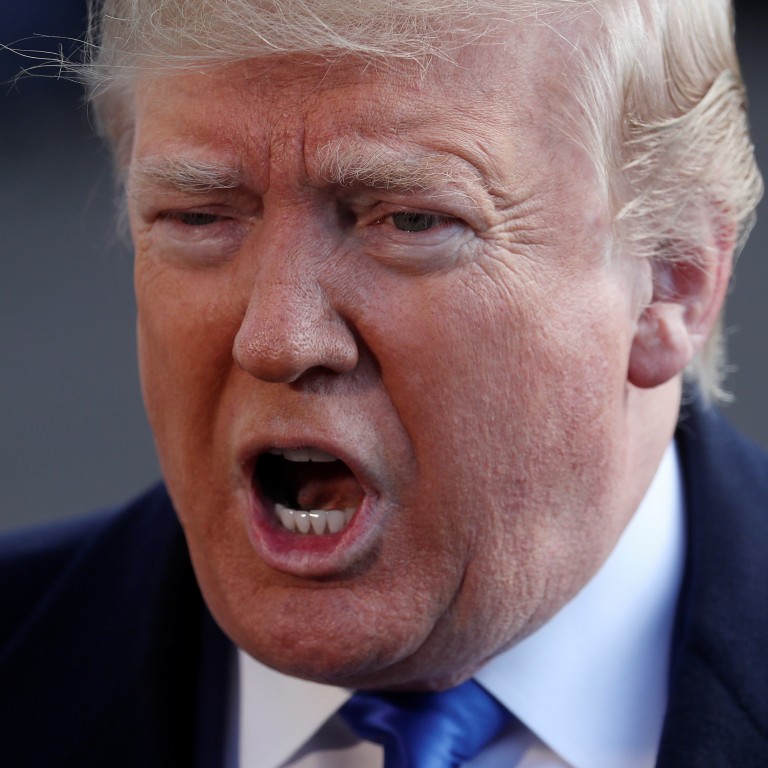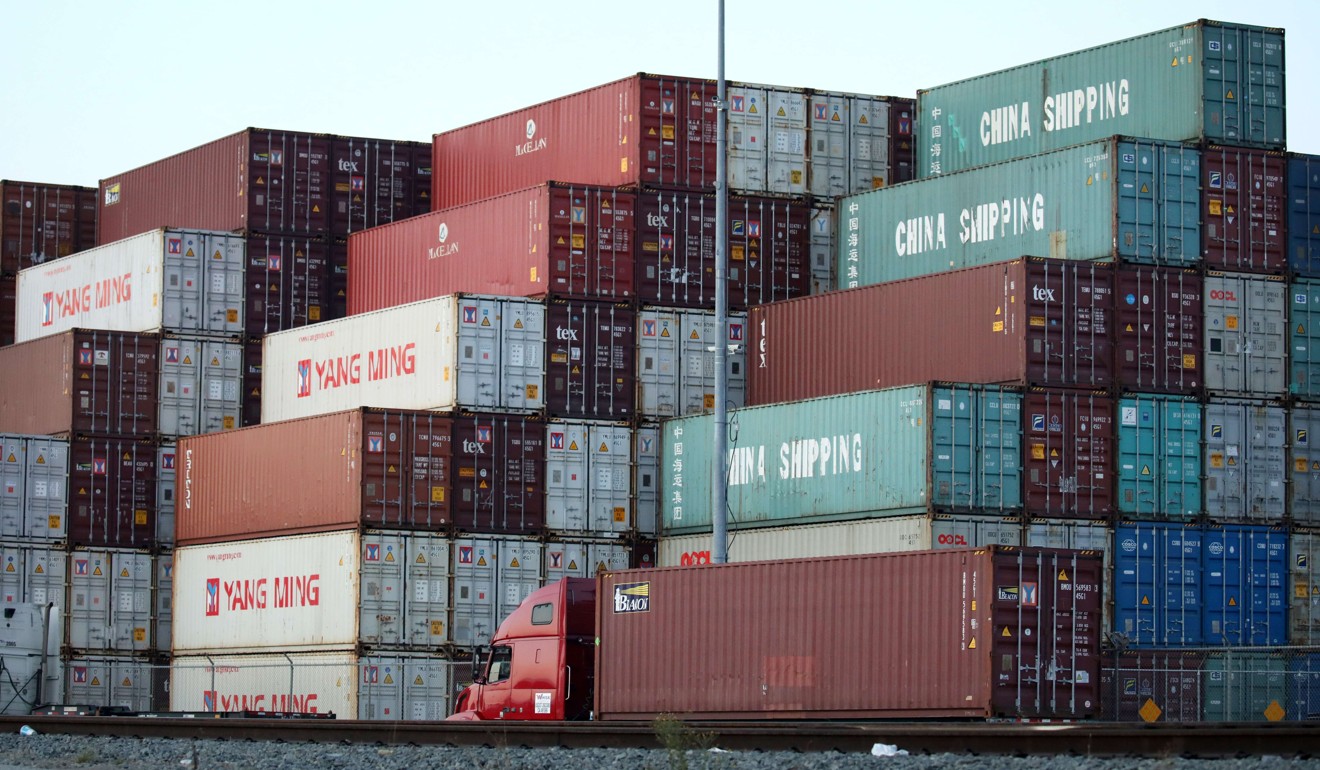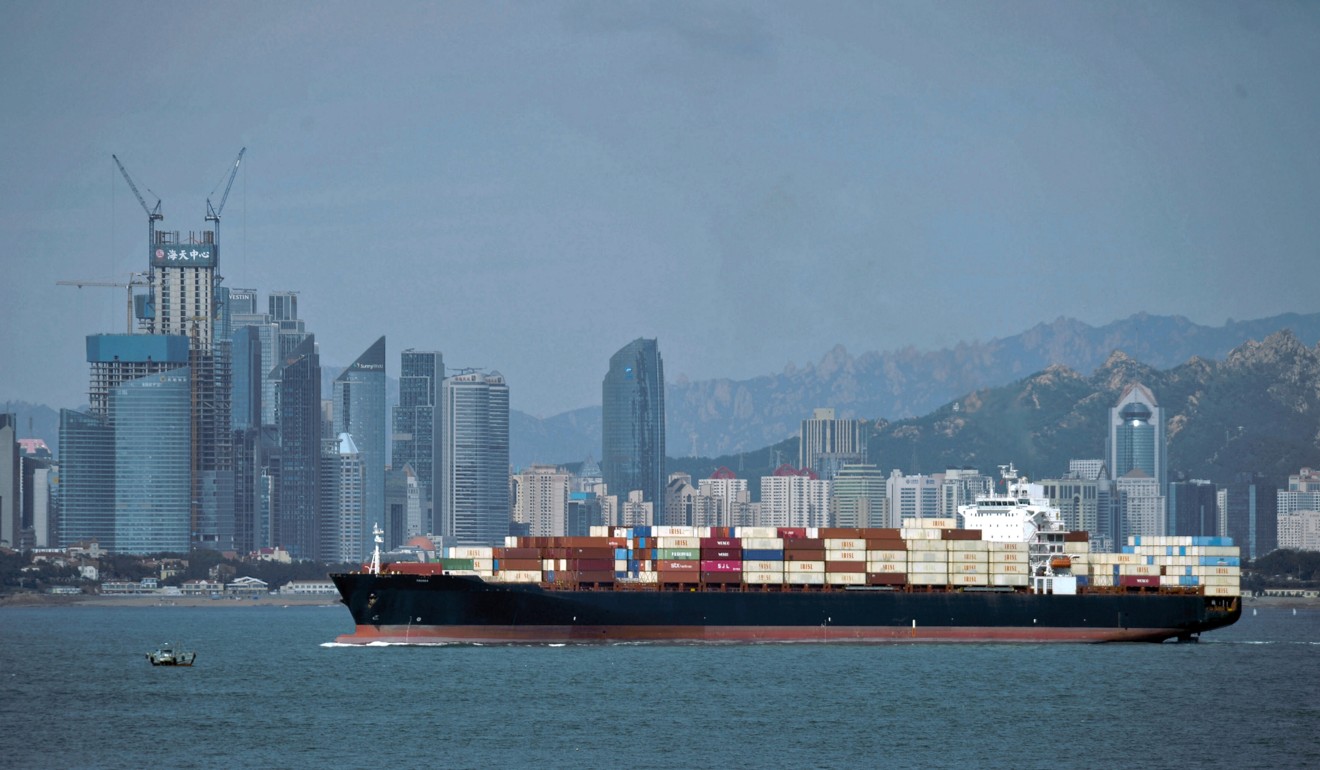
Donald Trump denies agreeing to roll back trade war tariffs on China, despite earlier reports
- Beijing on Thursday said the two sides had agreed to roll back tariffs on each others’ goods as part of a ‘phase one’ trade deal
- But the US president denied this on Friday, telling reporters that he had not agreed to roll back tariffs
US President Donald Trump denied a claim by Beijing that he was willing to roll back tariffs on Chinese goods as part of an interim trade deal.
Asked by reporters at the White House on Friday if he would cancel punitive tariffs, Trump said: “They'd like to have a rollback. I haven't agreed to anything.”
“China would like to get somewhat of a rollback, not a complete rollback, because they know I won't do it,” he said. “Frankly, they want to make a deal a lot more than I do.”
Ministry spokesman Gao Feng had previously said: “In the past two weeks, top negotiators have had serious and constructive discussions on resolving issues of core concern. Both sides agreed to remove the additional tariffs imposed in phases as progress is made on the agreement.
“If China and the US reach a phase one deal, both sides should roll back existing additional tariffs in the same proportion simultaneously.”
The mixed messaging from Beijing and Washington comes amid uncertainty over where the two leaders would meet to sign a deal.
Trump and other US officials have since suggested that a meeting could be held in Iowa, Hawaii or Alaska.
Asked on Friday whether the summit would take place at the president’s Mar-a-Lago estate in Florida, Trump said: “I don’t think so”.

Andrew Mertha, director of the China studies programme at the Johns Hopkins School of Advanced International Studies in Washington, said it was hard to tell whether Trump’s denial of agreeing to a tariff rollback was “a strategy, as in Trump seeking to show his base [and Congress] that he is not weakened by the impeachment inquiry”, or “a synaptic reaction to being denied the opportunity to make the announcement himself”.
Another possibility, Mertha said, is that Trump’s “trade people are privately telling him that he should hold out for something better. They want more structural changes, while [Trump] just wants a deal that looks tough”.

“We just don’t know with this president,” Mertha said.
An interim trade deal was widely expected to include a US pledge to scrap tariffs scheduled for December 15 on about US$156 billion worth of Chinese imports, including mobile phones, laptop computers and toys.
From Nixon to Trump, the US still takes personal approach to China relations
Last month, China pledged to buy as much as US$50 billion worth of US agricultural products and open up its financial markets further to foreign investors.

